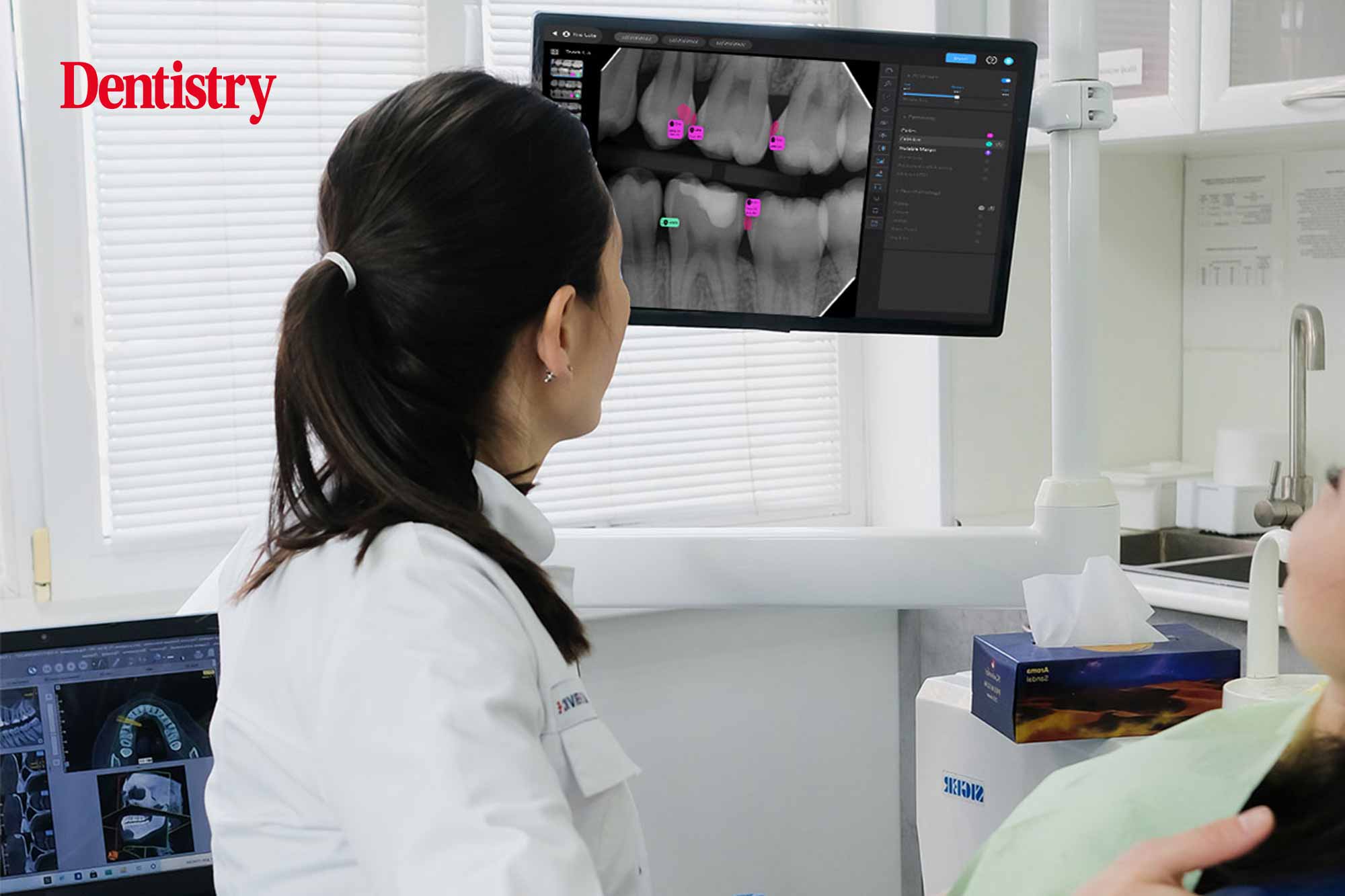
Does transparency lead to trust? asks Pearl’s Nick Garrison, who discusses how asking this can support the relationship between AI (artificial intelligence) and dental case acceptance.
Beginning with you, as a dentist, you are likely to exhibit some degree of transparency relative to your professional frustrations. For example, it is common to be frustrated when you provide an expert diagnosis and your patient still denies treatment.
Shifting the narrative, transparency also factors into how your patients perceive your diagnosis and related case presentation. Providing as objective a diagnosis as possible can often be met with doubt by a patient.
- Patients could be skeptical about your stated discoveries.
- Patients might even second-guess what you highlight in their X-rays.
When a dental X-ray might not be enough
Dental X-rays might or might not reveal the obvious. And what’s obvious to you is likely not always obvious to your patient.
Preconceived ideas about the diagnostic consultation or the inability to see what you (the dental professional) see can create barriers to case acceptance and favourable treatment outcomes.
This is an instance where more is better.
- More visible evidence that supports your diagnosis.
- More supportive evidence that creates diagnostic transparency and trust.
How AI can help increase case acceptance
Inserting AI technology into your treatment presentations can help with both transparency and perceived lack of bias. Patient perception can sharpen when trained AI adds some ‘colour’ to the otherwise ‘bland’ technical data within a standard x-ray.
AI excels in its capacity to support objectivity around your diagnoses and whether or not patients accept them.
Accuracy
Studies reveal the impressive results around AI and diagnostic accuracy.
Numerous studies have shown the accuracy of computer vision AI applications for dental radiology:
- ‘A 2018 study examined the efficacy of CNNs at identifying dental caries on periapical radiographs. The results showed that CNNs had detection accuracy rates of 89% for premolars and 88% for molars’
- ‘…a 2020 study that found that AI could identify caries with a 97.1% accuracy rate’
- ‘Results from the second 2020 study determined that AI successfully detected 97.6% of dental restorations on x-rays, leaving no doubt that the technology is effective’
Pearl founder and CEO Ophir Tanz further highlights the supportive accuracy of AI: ‘Computers are just better than us at many things, like math or crunching numbers…But they’re worse at issuing care and having empathy and being able to take lots of disparate data sets and come up with a treatment plan, etc.
‘I think that we should be embracing the technology to support us in things that it is uniquely positioned to enable us to do better.’
Objectivity
The ability to form an objective diagnosis gives you and your patients an advantage. Perhaps that’s the essence of doing ‘better’ as earlier stated.
AI comes alongside you and compliments your expertise. And for the sake of clarity, the technology doesn’t replace your expertise.
The objective benefit of AI:
- Assists with a difficult diagnosis.
- Forms and presents an on-the-spot ‘second opinion’
- Helps uncover otherwise undetected pathologies.
To clarify the objectivity provided by AI, Pearl’s Ophir Tanz said: ‘AI enables us to drive the highest standard of care…We’re just delivering a level of truth that is totally transparent, that is totally verifiable.
‘But (it) is also probably statistically quite good. And we should be embracing truth above all else because that is what’s going to lead to healthier patients.’
Clarity
Informing a patient they need treatment and believing they understand their need for treatment can create tension around case acceptance.
AI provides an educational benefit to your patients.
- AI-generated annotations on x-rays can increase a patient’s understanding of your diagnosis.
- AI helps simplify diagnostic details so patients can make more informed treatment decisions.
Patient engagement around treatment improves when transparency and trust are in the mix. Discover more about how AI delivers both and supports the potential for an increase in case acceptance.
Explore the following resources to understand the capacity AI has for accuracy, objectivity, and clarity relative to treatment:
- Dentistry has an inconsistency problem
- Advanced tech boosts patient trust and retention, survey says.
Leading AI technology is helping build trust between providers and patients
Pearl is a global dental AI leader assisting dentists across six continents with robust clinical pathology detection.
Get acquainted with Pearl here. Curious how AI can benefit your dental practice? Request a free live demo now.


